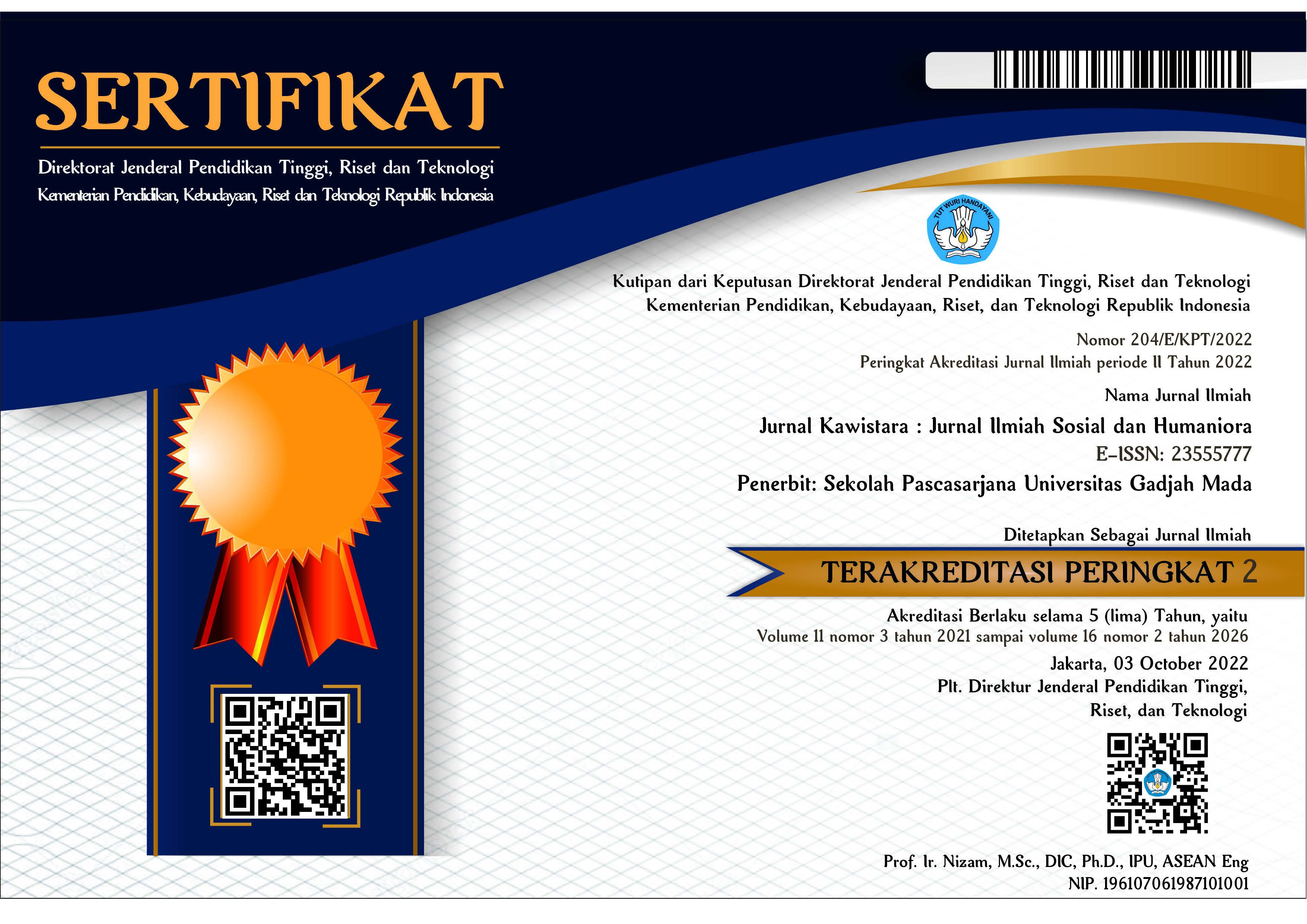PENGEMBANGAN MADRASAH BERPARADIGMA PEMBANGUNAN BERKELANJUTAN
M Imam Zamroni(1*), Lies Rahayu WF(2)
(1) Peneliti Pusat Studi Asia Pasifi k Universitas Gadjah Mada
(2) Fakultas Kehutanan Universitas Gadjah Mada
(*) Corresponding Author
Abstract
This study aims to discover learning innovation for education for sustainable development (EfSD) that can
bring sustainability regarding resources, the environmental, social and cultural. EfSD can teach morality to
human beings as actors in their environment, pushing them to always be careful and wise in every activity
that uses natural resources. The use of natural resources for the development is not only to meet short-term
economic needs; it is therefore necessary to establish mana gement strategies that ensure sustainability, fairness,
and effi ciency. Efforts to achieve these strategies are mediated by interviewing people regarding environment
ethical values, which in this case were implemented in children’s education. The results of this research show
that: (1) developing sustainable, development-paradigmatuc learning innovations must comply with the talents
of students, which can be done by developing KTSP (curriculum for unit-level education); (2) the conservation
of socio-cultural value is the basis to achieve a sustainable development paradigm; (3) innovations necessary
for the creation of a sustainable development paradigm vary for each school background. This innovation
is expected to guarantee the realization of a sustainable development paradigm in formal education; for the
sake of intergenerational environment conservation.
bring sustainability regarding resources, the environmental, social and cultural. EfSD can teach morality to
human beings as actors in their environment, pushing them to always be careful and wise in every activity
that uses natural resources. The use of natural resources for the development is not only to meet short-term
economic needs; it is therefore necessary to establish mana gement strategies that ensure sustainability, fairness,
and effi ciency. Efforts to achieve these strategies are mediated by interviewing people regarding environment
ethical values, which in this case were implemented in children’s education. The results of this research show
that: (1) developing sustainable, development-paradigmatuc learning innovations must comply with the talents
of students, which can be done by developing KTSP (curriculum for unit-level education); (2) the conservation
of socio-cultural value is the basis to achieve a sustainable development paradigm; (3) innovations necessary
for the creation of a sustainable development paradigm vary for each school background. This innovation
is expected to guarantee the realization of a sustainable development paradigm in formal education; for the
sake of intergenerational environment conservation.
Keywords
Islamic Education, Madrasah and Sustainable Development
Full Text:
PDFArticle Metrics
Refbacks
- There are currently no refbacks.
Copyright (c)
Jurnal Kawistara is published by the Graduate School, Universitas Gadjah Mada.







